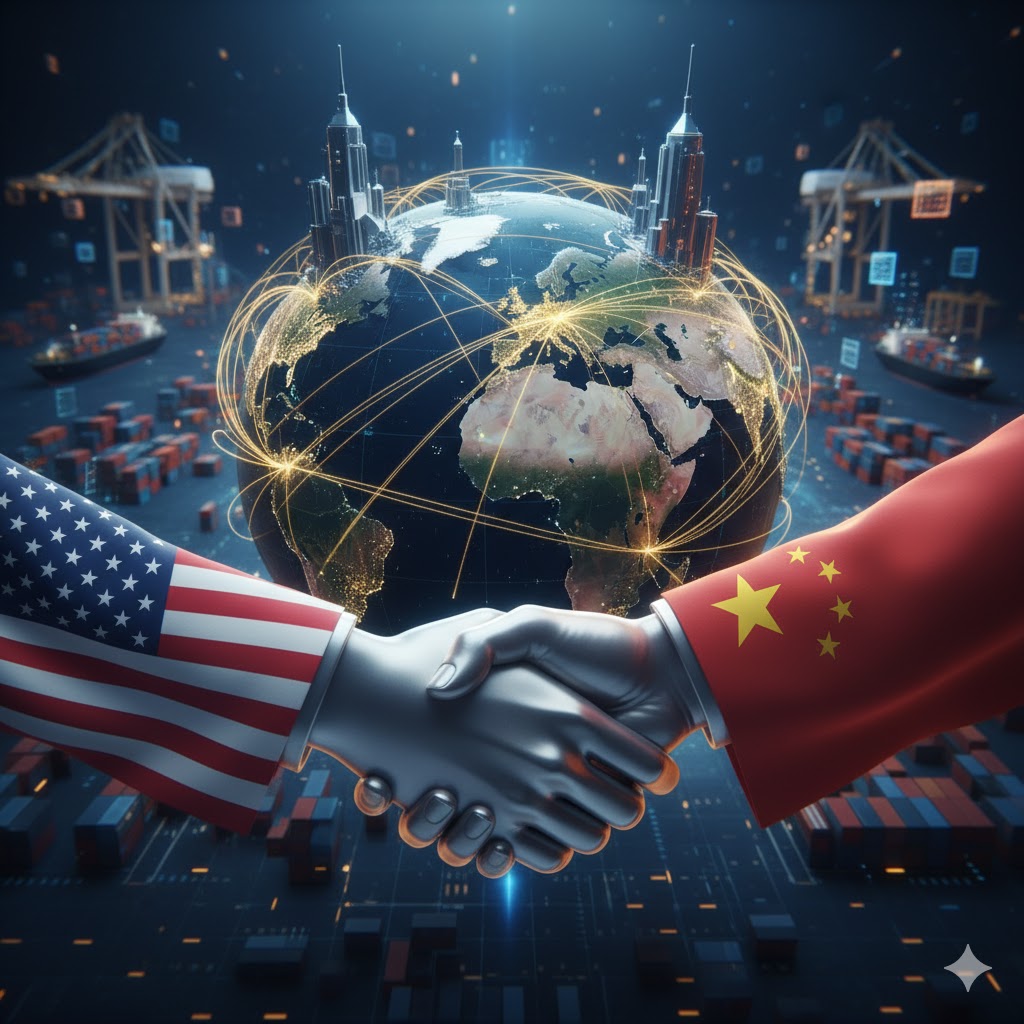Hedge fund manager Scott Bessent, founder and CEO of Key Square Group, believes the United States and China are on track to develop a “substantial trade framework” a move that could reshape global markets and economic cooperation between the two largest economies.
Bessent’s remarks come amid rising geopolitical tensions and ongoing debates about deglobalization. However, he argues that strategic interdependence between the U.S. and China makes an outright economic decoupling unlikely. Instead, a structured trade relationship could emerge that balances competition with pragmatic collaboration.
Economic Interdependence Over Isolation
According to Bessent, both nations share powerful economic incentives to redefine not sever their trade relationship. Despite tariff pressures, export restrictions, and political friction, the trade volume between the U.S. and China has remained substantial, underscoring their mutual reliance.
“While political rhetoric often points toward separation, the economic realities suggest otherwise,” Bessent noted. “The global economy functions on shared production chains, technology flows, and financial systems that can’t be easily disentangled.”
Analysts echo this sentiment, observing that even with ongoing trade disputes, both nations have quietly expanded cooperation in green energy, supply chain logistics, and digital payments, signaling a pragmatic undercurrent beneath public tensions.
A New Framework for Global Trade
Bessent envisions a “substantial framework” that focuses on mutual benefit rather than zero-sum competition. This potential structure could involve sector-specific agreements, emphasizing critical industries like semiconductors, electric vehicles, and renewable energy areas where global supply chains are deeply intertwined.
“The next phase of globalization will be selective,” Bessent explained. “Rather than globalizing everything, nations will globalize what is strategically efficient.”
This trend mirrors emerging trade dynamics, where countries balance national security with economic integration, particularly in the face of technological rivalry and shifting production centers in Asia.
Implications for Global Markets
Markets have reacted positively to signs of thawing economic tensions. A potential U.S.-China trade framework could:
Stabilize global supply chains, easing inflationary pressures.
Boost investor confidence in emerging markets tied to both economies.
Support commodities and tech sectors, especially those linked to industrial and energy transition goals.
Bessent emphasized that the global economy thrives on predictability and cooperation, both of which could return if trade relations take a more structured form.
Digital Finance and the Yuan’s Expanding Role
One area that could see significant evolution under a new trade framework is digital finance. China’s advancements with its digital yuan (e-CNY) and cross-border payment systems, such as the m-CBDC Bridge, offer models for more efficient international settlements.
If integrated into a U.S.-China trade context, such systems could streamline transactions and reduce dependency on intermediaries like SWIFT a scenario that could accelerate the tokenization of trade finance and stablecoin-backed settlements.
Bessent noted that financial innovation, including blockchain and digital asset integration, will “define the next chapter of global trade efficiency.”
Strategic Balancing and the Road Ahead
While optimism surrounds Bessent’s prediction, experts caution that any trade framework would need to navigate complex issues such as intellectual property protection, cybersecurity, and national security concerns.
Still, the potential benefits from lower supply chain friction to reduced macroeconomic volatility make it a development worth watching closely.
“The U.S. and China both stand to gain from a cooperative framework that supports economic stability without compromising sovereignty,” Bessent concluded. “The 21st century economy will reward collaboration anchored in mutual interest.”
Conclusion
As global markets adapt to shifting trade and technology landscapes, the possibility of a U.S.–China trade framework signals renewed pragmatism in global economic policy. If realized, such a partnership could mark a new era of selective globalization, balancing innovation, competition, and shared prosperity.





